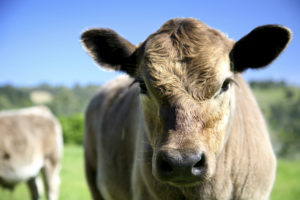Read the latest information on
Foot-and-mouth disease

Diseases that can have a serious impact on livestock and human health can be spread by providing contaminated feed products to livestock. Every livestock producer has a responsibility to help keep Australia free from these diseases such as bovine spongiform encephalopathy (BSE).
Fortunately, Australia is free from these diseases due to the ban on feeding restricted animal materials (RAM) and we’d like to keep it that way, says Animal Health Australia’s (AHA) Senior Biosecurity Manager, Dr Rob Barwell.
“Thanks in part to Australia’s legislation surrounding the ban of feeding RAM to livestock and that we don’t import cattle from countries where BSE has been found, Australia is fortunate to be free of BSE and it’s vitally important that it stays this way,” said Dr Barwell.
RAM is any material taken from a vertebrate animal – a category which includes poultry, eggs and fish – except for Australian milk products, gelatin and tallow or oils which are treated in accordance with certain industry standards.
“Over the last 30-years, the United States, United Kingdom, Canada and Japan have all suffered due to the spread of BSE (also called ‘mad cow disease’) which had devastating effects on livestock production, the closure of export markets, as well as producers being impacted for the long-term,”
“Producers, stock feed manufacturers and retailers all have a responsibility to comply with the ban to ensure the safe provision of beef products not only nationally, but to international markets and our global customers,” explained Dr Barwell.
All production-based assurance schemes, such as Livestock Production Assurance and the National Feedlot Accreditation Scheme, audit livestock producers to check they are complying with the Ruminant Feed Ban. Failure to comply with the Ruminant Feed Ban can carry heavy fines and penalties.
“It’s crucial that you read the label on your stock feed to make sure it does not contain RAM. Look for RAM-free stock feed from a reputable supplier – it doesn’t matter if you run a commercial enterprise or just a few backyard livestock, the ban is important and is still applicable,” said Dr Barwell.
So, what can you do to do your bit and keep Australia free of BSE?
For more information click here.